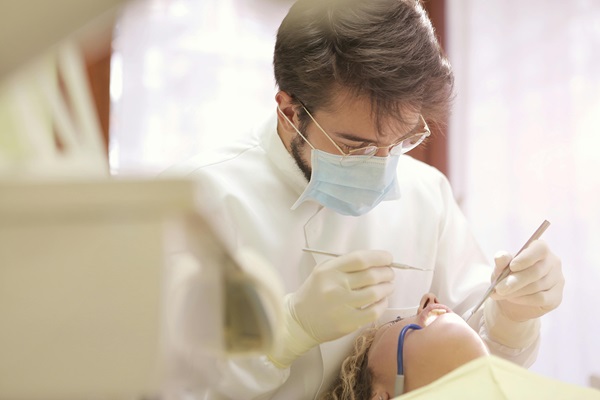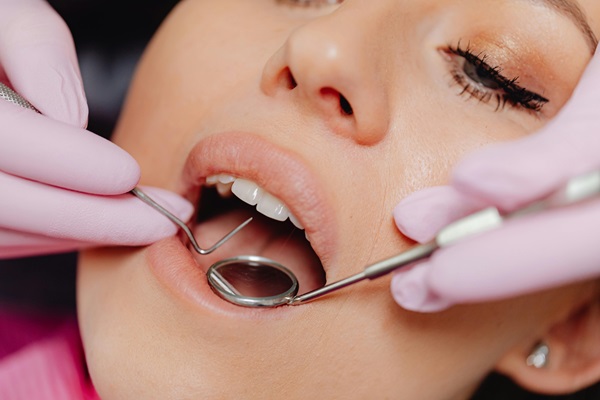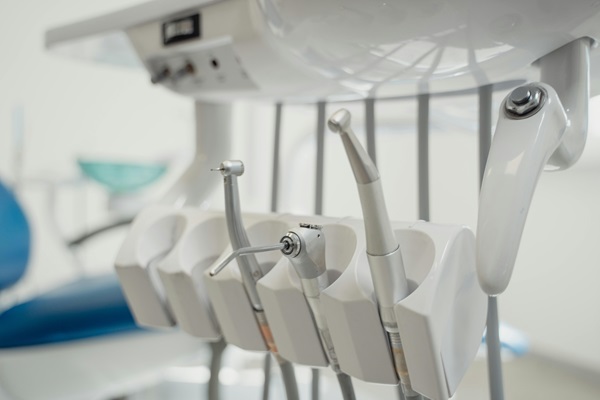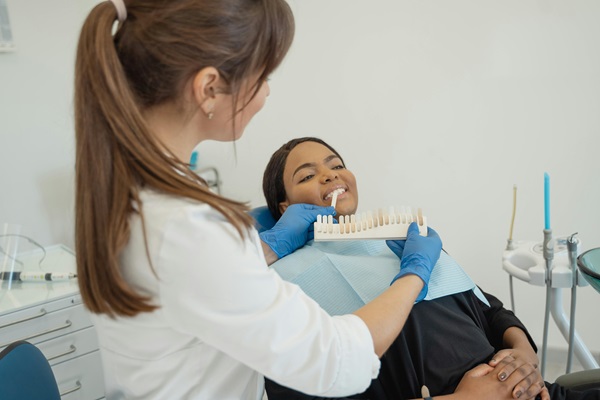The art of a gleaming, healthy smile is more than just aesthetics; it’s a gateway to a broader realm of overall well-being. In this expansive article, we’ll unveil the importance of dental care and the connection between dental care and your general health. From the importance of daily oral hygiene practices to cutting-edge dental innovations, this guide explores the multifaceted world of oral health. Let’s dive into the depth of this crucial subject, revealing the importance of dental care and how it can unexpectedly enhance your life.

I. Importance of Dental Care
A. The Significance of Oral Health
Oral health goes far beyond the simple act of brushing your teeth. It’s a fundamental element of your overall well-being. Not only does a healthy mouth enable you to speak and eat properly, but it can also profoundly impact your self-esteem and social confidence.
B. The Role of Dental Care
Dental care is the key to maintaining this crucial aspect of your health. It encompasses everything from regular check-ups to specialized treatments and even extends to preventive measures and cosmetic procedures.
II. The Connection between Oral Health and General Well-being
A. Oral Health as a Window to Overall Health
Your mouth can serve as a window into your body’s overall health. Many systemic diseases, such as diabetes and heart disease, often manifest oral symptoms. By taking care of your oral health, you’re also looking after your body’s well-being.
B. Medical Conditions Linked to Poor Oral Health
Conditions like gum disease have been linked to serious health issues, including heart disease and preterm birth. Neglecting oral health could have far-reaching consequences.
III. Preventive Dental Care
A. Regular Dental Check-ups
Routine dental check-ups are not just about cleaning your teeth; they’re an essential tool for early disease detection. Your dentist can identify issues like cavities and gum disease before they become major problems.
B. Importance of Dental Cleaning
Regular dental cleanings remove built-up plaque and tartar, preventing gum disease and cavities. These cleanings are a cornerstone of preventive dental care.
C. The Role of X-rays in Prevention
X-rays aren’t just for finding hidden dental problems. They can reveal issues with your jawbone and the position of your teeth. Early detection of these issues can save you from future dental complications.
IV. Daily Oral Hygiene Practices
A. The Power of Brushing
Brushing your teeth twice a day is a fundamental practice for maintaining oral health. It removes food particles and prevents the buildup of plaque, which can lead to cavities.
B. Flossing for Optimal Oral Health
Flossing reaches where your toothbrush can’t, between the teeth. This vital practice prevents gum disease and cavities by removing plaque and food particles from these hard-to-reach areas.
C. Mouthwash and Its Benefits
Mouthwash isn’t just for fresh breath. It can help kill bacteria in your mouth and strengthen your teeth. Incorporating mouthwash into your daily routine is a simple way to enhance your oral health.
V. Nutrition and Oral Health
A. The Impact of Diet on Teeth and Gums
What you eat has a direct impact on your oral health. Sugary and acidic foods can erode enamel and lead to cavities. A balanced diet rich in vitamins and minerals is essential for strong teeth and gums.
B. Foods that Promote Oral Health
Certain foods, like dairy products and leafy greens, are packed with calcium and other nutrients that promote strong teeth. Including these in your diet can help maintain your oral health.
C. Foods to Avoid for a Healthy Smile
Sugar-laden snacks and acidic beverages can wreak havoc on your teeth. Knowing which foods to limit or avoid is a key aspect of protecting your oral health.

VI. Common Dental Problems
A. Dental Caries (Cavities)
Cavities, or dental caries, are one of the most common dental problems. They form when plaque combines with sugars, leading to tooth decay. Early detection and treatment are crucial to preventing more extensive damage.
B. Gum Disease and Its Stages
Gum disease can progress from mild gingivitis to severe periodontitis, potentially causing tooth loss. Regular dental care can halt its progression and maintain healthy gums.
C. Tooth Sensitivity and Causes
Tooth sensitivity, often triggered by hot or cold foods, can be a symptom of underlying dental issues. Identifying the cause and addressing it is essential for pain relief and protection.
VII. Restorative Dental Care
A. Dental Fillings for Cavities
When cavities do occur, dental fillings are a common solution. They restore the tooth’s structure and prevent further decay.
B. Crowns and Bridges for Damaged Teeth
Crowns are used to cover and protect damaged teeth, while bridges replace missing teeth. These restorative measures help maintain a healthy bite and smile.
C. Root Canals to Save Teeth
Root canals can rescue teeth with damaged or infected pulp. They allow you to keep your natural tooth, avoiding the need for extraction.
VIII. Cosmetic Dentistry for Confidence
A. Teeth Whitening for a Brighter Smile
Teeth whitening procedures can remove stains and brighten your smile, boosting your self-confidence.
B. Dental Veneers for a Flawless Look
Dental veneers are thin shells that cover the front surface of teeth, creating a stunning, flawless appearance.
C. Orthodontic Treatments and Their Benefits
Orthodontic treatments, such as braces and clear aligners, not only enhance the aesthetics of your smile but also correct bite issues, improving oral health.
IX. Oral Health Through the Lifespan
A. Children’s Dental Care
Starting oral care early is essential for children. Regular check-ups, sealants, and fluoride treatments can prevent dental problems in their formative years.
B. Dental Care in Adulthood
Maintaining oral health as an adult involves addressing the unique challenges that come with age. This includes managing gum disease and tooth loss. The Importance of dental care for adults is crucial not only for maintaining oral health but also for enhancing overall quality of life.
C. Senior Oral Health Concerns
Seniors may face issues like dry mouth and tooth sensitivity. These issues require specific dental care approaches to maintain comfort and health.
X. The Financial Aspect of Dental Care
A. Dental Insurance and Its Importance
Dental insurance is a vital tool for making dental care affordable. It can significantly reduce out-of-pocket expenses for routine and unexpected treatments.
B. Cost-Effective Dental Care Options
For those without insurance, there are cost-effective options, such as dental savings plans and community health clinics, that make quality dental care accessible.
C. The Consequences of Neglecting Oral Health
Neglecting dental care might seem cost-effective in the short term, but the long-term consequences can be severe, both for your health and your wallet.

XI. Dental Care Innovations
A. Technology in Modern Dentistry
Modern dentistry leverages advanced technology, such as digital radiography and laser dentistry, for more accurate diagnoses and less invasive treatments.
B. Teledentistry and Its Convenience
Teledentistry allows for remote consultations with dental professionals, offering convenience and accessibility to those with limited mobility or in remote areas.
C. Eco-Friendly Dental Practices
The dental industry is moving towards more sustainable and eco-friendly practices, reducing its environmental impact.
XII. The Psychological Impact of a Healthy Smile
A. Self-esteem and Confidence
A healthy, beautiful smile can boost self-esteem and confidence, leading to more fulfilling personal and professional relationships.
B. Social and Professional Benefits
A great smile can open doors in social and professional settings, enhancing your quality of life in unexpected ways.
XIII. Dental Care and Pregnancy
A. Pregnancy-Related Oral Health Issues
Pregnancy can affect oral health, leading to issues like pregnancy gingivitis. Understanding and managing these issues is crucial.
B. Safe Dental Care During Pregnancy
Maintaining oral health during pregnancy is essential. Many dental treatments are safe during pregnancy, ensuring both your health and your baby’s well-being.
C. The Importance of Dental Care for Infants
Early dental care for infants can prevent future dental issues and set the stage for a lifetime of healthy smiles.
XIV. The Global Perspective on Dental Care
A. Disparities in Dental Care Access
Access to dental care varies greatly worldwide, with some regions facing significant disparities in oral health services.
B. Initiatives for Better Global Oral Health
Numerous organizations and initiatives are working to improve global oral health by providing care, education, and resources to underserved communities.

XV. Oral Health in Popular Culture
A. Iconic Smiles in History
From Marilyn Monroe’s iconic smile to Julia Roberts’ wide grin, famous smiles have left an indelible mark on popular culture.
B. Influence of Celebrities on Oral Health Trends
Celebrities often set trends in oral health, with many people seeking treatments and procedures to achieve that Hollywood smile.
XVI. The Future of Dental Care
A. Research and Development in Dentistry
Ongoing research is pushing the boundaries of dental care, exploring new materials and techniques for improved treatments.
B. Potential Breakthroughs in Oral Health
The future holds exciting possibilities, such as regenerative dentistry and personalized treatment plans.
XVII. Overcoming Dental Anxiety
A. Strategies for Coping with Dental Phobia
Dental anxiety is common but can be managed through relaxation techniques, sedation options, and open communication with your dentist.
B. Sedation Dentistry for a Comfortable Experience
Sedation dentistry offers a range of options to make your dental visits as comfortable and anxiety-free as possible.
XVIII. The Role of Dental Professionals
A. Dentists, Hygienists, and Specialists
Understanding the roles of different dental professionals can help you make informed choices about your oral health care.
B. Choosing the Right Dental Team
Selecting the right dental team is crucial. Factors like experience, specialization, and communication are key considerations.
XIX. Holistic and Integrative Dentistry
A. Oral Health as Part of Holistic Well-being
Holistic dentistry considers the interconnectedness of oral health with overall well-being, using natural and alternative approaches.
B. Integrating Alternative Practices
Holistic dentistry integrates practices like acupuncture and herbal remedies to enhance traditional dental care.

XX. Environmental Responsibility in Dentistry
A. Sustainable Dental Practices
Dental practices are becoming more eco-conscious, reducing waste and their carbon footprint.
B. Eco-Friendly Dental Products
From biodegradable toothbrushes to eco-friendly toothpaste, the market offers sustainable alternatives for consumers.
XXI. Oral Health Education
A. The Importance of Dental Care Awareness
Raising awareness about oral health is essential for promoting preventive measures and early detection of issues.
B. Teaching Good Oral Hygiene Habits
Educating individuals, especially children, on proper oral hygiene practices can have a lifelong impact on their oral health.
XXII. Dental Care and Technology
A. Digital Records and Diagnostics
Digital technology streamlines record-keeping and diagnostic processes, making dental care more efficient and accurate.
B. The Future of Dental Technology
Advancements like 3D printing and teledentistry are shaping the future of dental care, promising enhanced patient experiences.
XXIII. Dental Emergencies and First Aid
A. Handling Common Dental Emergencies
Understanding how to respond to common dental emergencies, like a knocked-out tooth or a broken filling, can prevent further damage.
B. First-Aid Tips for Dental Issues
Having basic first-aid knowledge for dental problems can be invaluable until you can seek professional care.
XXIV. Traveling and Oral Health
A. Maintaining Oral Health on the Go
Traveling doesn’t mean neglecting your oral health. Learn how to care for your teeth while on the move.
B. Dental Care While Traveling Abroad
For international travelers, understanding the importance of dental care practices in different countries and having a plan for emergencies is crucial.
XXV. Conclusion
A. Recap of the Importance of Dental Care
In this journey through the world of dental care, we’ve explored the importance of dental care and the profound link between oral health and overall well-being.
B. The Lifelong Benefits of a Healthy Smile
Your smile is not just a reflection of your oral health; it’s a reflection of your vitality and well-being, underscoring the importance of dental care which can lead to a lifetime of smiles and good health.




